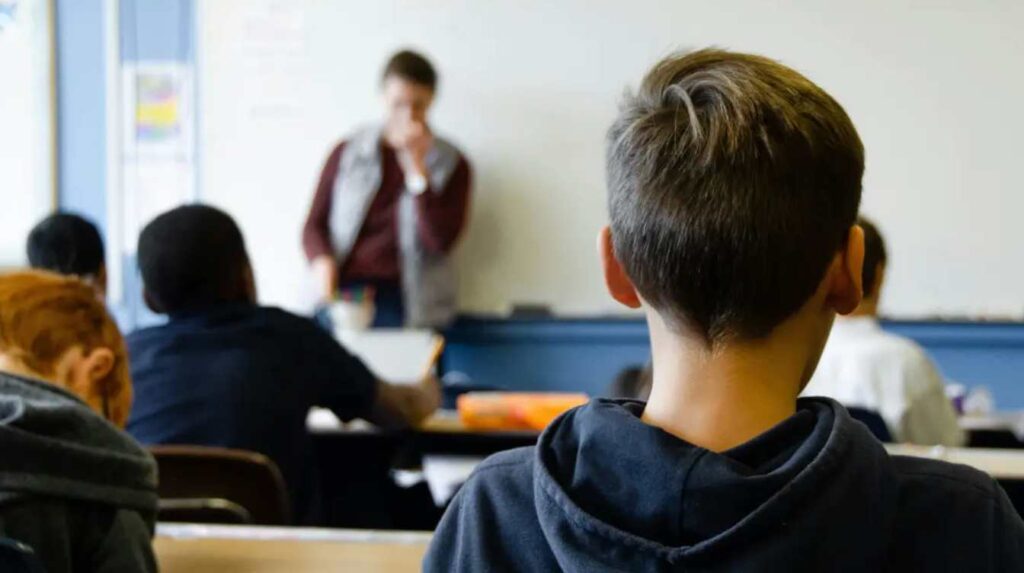As students return to classrooms this fall, at least one state is turning to an unusual solution to keep schools running. In Oklahoma, where a severe teacher shortage has made it difficult to fully staff classrooms, educators from Mexico are being brought in to help meet the demand.
These teachers, coming from regions like Puebla, Mexico, are joining Santa Fe South Schools as part of a program designed to fill vacancies that otherwise might have left students without instructors. While this move helps keep classrooms staffed in the short term, it does little to resolve the underlying issues—such as low pay and poor working conditions—that have driven many away from the profession, meaning the teacher crisis could persist.
Still, for now, the program seems to be offering some relief. According to News9, the initiative, led by the nonprofit Fuel OKC, is working to bring qualified educators from Mexico to teach in Oklahoma during the 2025–2026 school year. The teachers arrive on H-1B visas and are provided with housing to ease their transition. So far, three educators have joined Santa Fe South Schools, teaching art, humanities, and math.
All three hold bachelor’s degrees, are fully bilingual, and meet the requirements of the program. A Fuel OKC spokesperson highlighted the significance of representation, noting: “The majority of those kids are of Mexican heritage, and research shows that kids do very well when they have teachers that look like them.”
@fiercebymitu Oklahoma just brought in 3 teachers from Mexico to help with a major classroom shortage 📚✈️ These aren’t “exchange” teachers. They’re master’s degree–holding, bilingual pros on three-year contracts, hired through a legal visa process and moving 2,000 miles to teach in a state where immigration tensions run high. The program’s a first-of-its-kind pilot, and it could expand across OKC. But can it survive the politics? 🔗 in b10 for full story #oklahoma #teachers #mexico #education ♬ sonido original – SF_Franco
The nonprofit has also pointed to a bigger issue—a lack of qualified candidates willing to enter the field. “We know folks aren’t going into teaching in the traditional manner that they used to,” the CEO explained, adding that both pay and working conditions were top reasons. “This isn’t just an Oklahoma problem; this is a national problem that people aren’t going into teaching.”
While teacher shortages are felt nationwide, Oklahoma faces particularly tough numbers. Data from Scholaroo shows the state had just 60.07 teachers per 1,000 students in the 2022–2023 school year, placing it 13th in the nation for the worst shortages.
At the same time, Oklahoma has introduced a controversial measure for teachers arriving from out of state. According to News9, educators relocating from states like New York and California may soon face a screening for what officials call “radical leftist ideology.”
PragerU shared a preview of the five-question multiple-choice test, which includes questions like:
@cbsnews Oklahoma will now require applicants for teacher jobs coming from California and New York to pass a political learnings exam that Oklahoma Superintendent Ryan Walters says will safeguard against the "radical leftist ideology" and "anti-Americanism" he says are taught in those states. "What we're doing is to ensure an understanding of the American form of government," Walters told Major Garrett. "We want to create patriotic citizens here in the state of Oklahoma. That's what the parents have demanded. So that's what we're going to do." One of the nation's largest teachers unions, the American Federation of Teachers, has criticized the process, calling it a "MAGA loyalty test" that will be "yet another turnoff for teachers in a state already struggling with a huge shortage." #news #Oklahoma #California #NewYork #teachers ♬ original sound – cbsnews
According to News9, the full exam will also cover American history, civics, and constitutional principles, with the stated goal of ensuring teachers align with “traditional American values.”
The move has sparked backlash nationwide, with critics calling it less of a qualification exam and more of a loyalty test, raising new concerns about how the state plans to handle its deepening education crisis.



